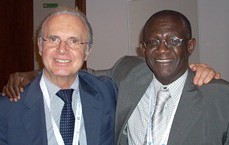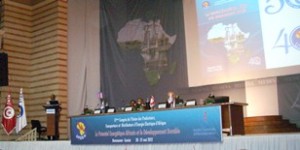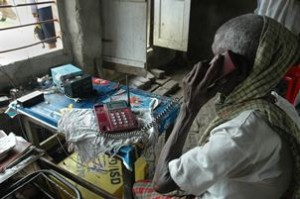At the 17th Congress of the Union of Producers, Transporters, and Distributors of Electric Power in Africa (UPDEA), Dr Latsoucabé Fall, WEC regional manager for Africa, noted that poor electricity access and low electricity consumption rank as the continent's top critical energy challenges.
Excluding South Africa and the North Africa region, the average electricity consumption per capita for the rest of Africa, encompassing 49 countries, is barely 150 kWh per person, which is equivalent to the power consumption of two 40-watt light bulbs for 5 hours a day over the year.
But there is a way forward. "Developing our huge energy resources and properly using our knowledge and expertise, in an efficient way, would address these challenges and offer enormous opportunities for the region," he told the audience, which included heads of power utilities and international and regional organisations.
He added that the WEC's Knowledge Network on the Performance of Generating Plants could help UPDEA's power utilities achieve substantial improvements in terms of performance, reliability and availability for their plants. The knowledge network promotes international data exchange and best practices for generating plant performance in order to help power plants achieve the most effective use of their generation assets and energy resources.
Dr Fall encouraged a strong partnership between the WEC and UPDEA's utilities members.
Africa's power sector also needed to focus on transmission, a "key asset" for delivering the energy resources, according to Alessandro Clerici, who chairs the WEC's study groups for the Survey of Energy Resources and Technologies and for the Interconnectivity study.
"Accurate feasibility studies covering all issues [associated with] interconnection projects are a key factor to paving the way for the acceptance and financing of project implementation," he said. These issues include the energy market, regulatory framework, technological solutions, environmental concerns, and costs.
In another presentation Clerici spoke about why interconnection can enable energy access for remote areas with no local energy resources.
Electricity in those areas is usually supplied by small local diesel generators fuelled by oil transported over distances exceeding 500 km from the closest port, he told the audience. Alternatives to this are biomass and mini hydro (for areas with those resources), as well as solar panels, which is still expensive and require storage. Interconnection can therefore address the electricity needs of those remote areas. "The transport of electricity from a single generating plant feeding different load centres can be cost competitive due to the economy of scale on investment cost and operation and maintenance costs, and due to the higher efficiency of larger units," he said.








